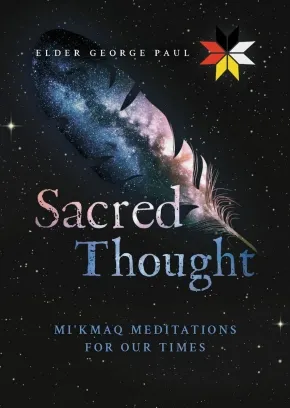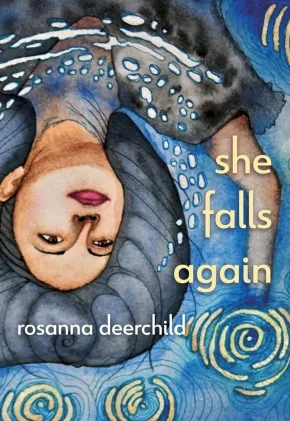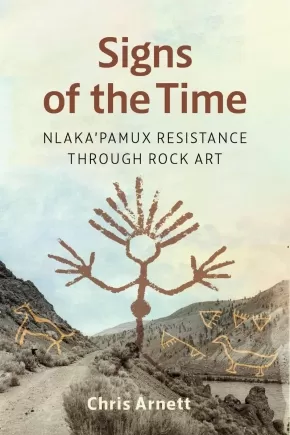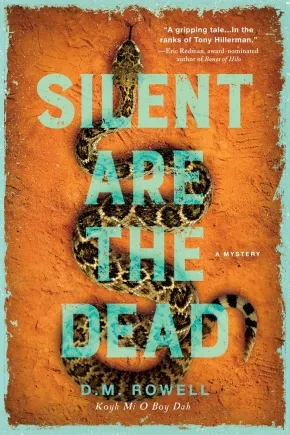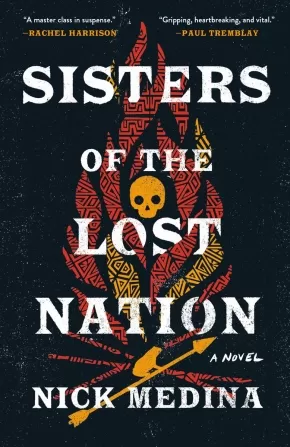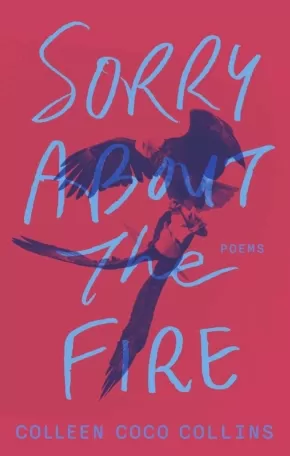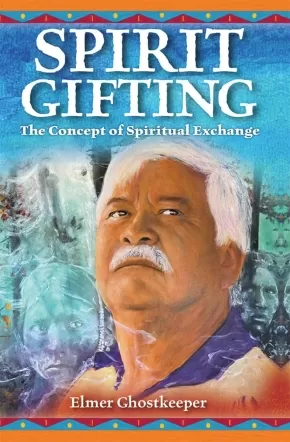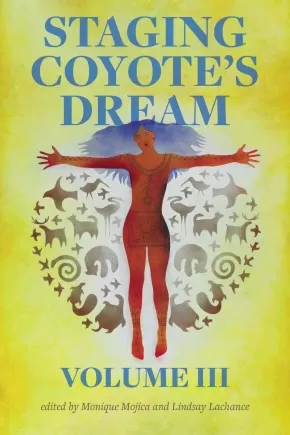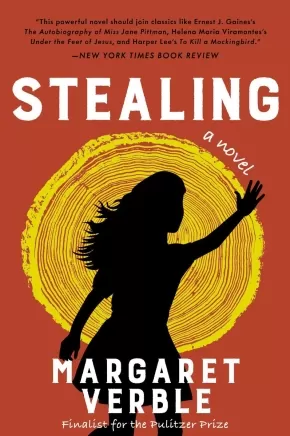
Books
256
-
270
of
1928 Results;
Sort By
Go To
of 129
Righting Canada's Wrongs Indigenous Studies Resource Guide (6 in Stock)
$24.95
Format:
Paperback
Text Content Territories:
Indigenous Canadian; First Nations; Inuit; Métis;
ISBN / Barcode: 9781459419643
Synopsis:
Synopsis:
A resource guide for the Righting Canada’s Wrongs Indigenous Studies set that provides lessons in historical thinking.
The Righting Canada's Wrongs Indigenous Studies set series is devoted to the exploration of racist and discriminatory government policies and actions against Indigenous peoples through our history, the fight for acknowledgement and justice and the eventual apologies and restitution of subsequent governments. The books in this series make a valuable addition to any classroom or library looking for kid-friendly and appealing resources on Indigenous Studies and equal rights in Canada. The engaging and curriculum-based lessons in this Resource Guide will help students to further understand some of the important events in Canada's history that helped shape our current multicultural society. Educators will find support for teaching about Canada's past and ongoing treatment of Indigenous Peoples and how to approach the topic of, colonization, racism and discrimination. As well, students will learn about the important cultures and traditions that have continued in the face of colonization.
Educator Information
Recommended for use with ages 13+
This resource guide provides lessons in historical thinking for the Righting Canada’s Wrongs Indigenous Studies set:
- Righting Canada's Wrongs: Inuit Relocations: Colonial Policies and Practices, Inuit Resilience and Resistance
- Righting Canada's Wrongs: Residential Schools: The Devastating Impact on Canada's Indigenous Peoples and the Truth and Reconciliation Commission's Findings and Calls for Action (PB) - 2nd Edition
- Righting Canada's Wrongs: The Sixties Scoop and the Stolen Lives of Indigenous Children
Additional Information
120 Pages | 8.5" x 11" | Paperback
Roth
$29.99
Artists:
Format:
Paperback
Text Content Territories:
Indigenous Canadian; First Nations; Dene;
ISBN / Barcode: 9781989754221
Synopsis:
Synopsis:
Unless there is snow on the ground, never speak their name aloud.
The more they eat the hungrier they become, and they are starving.
They were meant to stay undisturbed, their dismembered limbs scattered, frozen under the permafrost, but as is always the way, the greed of industry has unburied them once more. Now, the most feared, the Wheetago, have returned, using their powers to call back the Na acho, cannibalistic giants once banished by Dene deities.
The revered hero known as the Child Finder who is fighting to cling to his humanity after a Wheetago attack, a mother and her young son, and a desperate band of convicts, form an uneasy alliance to survive the Wheetago horrors now awakened.
ROTH, from award-winning, bestselling Tlicho Dene author Richard Van Camp, and visionary illustrator Christopher Shy is the first graphic novel in the Wheetago War series.
Reviews
"A storyteller is what Richard Van Camp is—a storyteller par excellence. He tells us of family and traditions, of past and present spirits. Through Roth, he weaves his magic yet again, entwined with the richly atmospheric and terrestrial palette of Christopher Shy. With the Wheetago War series, kind-hearted and horrifically evil come together to hold you fully embraced, page after page."– Kent Williams artist & illustrator X-Men, Batman
"This spectacular, boundary-pushing book will change the way you look at graphic novels.Rooted in ancient and powerful narratives, this captivating saga will have you holding your breath until it releases you from its grip at the end, only to want more.”- Waubgeshig Rice, author Moon of the Turning Leaves
Educator & Series Information
Recommended for ages 15+.
This book is the first book in the Wheetago War series.
Additional Information
192 pages | 6.62" x 10.25" | Paperback
Roxanne Dunbar-Ortiz's Indigenous Peoples' History of the United States: A Graphic Interpretation
$29.95
Artists:
Editors:
Format:
Hardcover
Text Content Territories:
Indigenous American;
Reading Level: N/A
ISBN / Barcode: 9780807012680
Synopsis:
Synopsis:
In stunning full color and accessible text, a graphic adaptation of the American Book Award winning history of the United States as told from the perspective of Indigenous peoples—perfect for readers of all ages
Roxanne Dunbar-Ortiz’s influential New York Times bestseller exposed the brutality of this nation’s founding and its legacy of settler-colonialism and genocide. Through evocative full color artwork, renowned cartoonist Paul Peart-Smith brings this watershed book to life, centering the perspective of the peoples displaced by Europeans and their white descendants to trace Indigenous perseverance over four centuries against policies intended to obliterate them.
Recognized for his adaptation of W.E.B. DuBois’ The Souls of Black Folk and his extensive expertise in the comics industry, Peart-Smith collaborates with experienced graphic novel editor Paul Buhle to provide an accessible introduction to a complex history that will attract new generations of readers of all ages. This striking graphic adaptation will rekindle crucial conversations about the centuries-long genocidal program of the US settler-colonial regime that has largely been omitted from history.
Reviews
“Adapting a work of history as dense and as vital as Dunbar-Ortiz’s An Indigenous Peoples’ History of the United States (2014) to comics form is no easy feat, but Peart-Smith is up for the task . . . A thoughtful, radically hopeful work that is sure to resonate with readers of all ages.” - Booklist
Educator Information
The publisher does not provide a recommended age range, but notes in the description that this graphic interpretation "will attract new generations of readers of all ages".
Table of Contents
Additional Information
120 pages | 8.22" x 10.28" | Hardcover
Sacred Thought: Mi'kmaq Meditations for our Times
$24.95
Format:
Paperback
Text Content Territories:
Indigenous Canadian; First Nations; Mi'kmaq (Mi'gmaq);
Reading Level: N/A
ISBN / Barcode: 9781998129256
Synopsis:
Synopsis:
In this philosophical exploration, Mi’kmaq Elder George Paul shares his traditional knowledge with those on a quest to better understand themselves and the world around them. Practiced and maintained by North American Indigenous tribes since time immemorial, this search for spirituality is informed by traditional knowledge, oral tradition and the use of symbols relating to our environment and to our universe. From the ceremonial to the sacred, George Paul meditates on the Indigenous legends, stories and designs of his ancient ancestors that offer new prospects to a modern population all across Turtle Island who are hungry to look inward.
With creation stories, buffalo sage and tapping into our spirit guides, Sacred Thought: Mi’kmaq Meditations for our Times is a book for those who are looking for balance and peace of mind in the chaos and confusion that govern the world today.
Reviews
“Elder George Paul, has dedicated more than four decades of his life to supporting the revitalization of our nation’s culture. In many ways, his tireless efforts have led a resurgence in our culture’s beautiful tapestry of language, spirit, and tradition — a colourful Mi'kmaw tapestry made all the more powerful when celebrated through the performance arts — and in particular, as we come together as a community to join in traditional song and dance.” - Julie Pellissier-Lush, Atlantic Books
"Elder George Paul has made significant contributions to safeguarding the cultural heritage of the Mi'kmaq. Through songs, stories and other artistic and intellectual expressions, he has worked tirelessly for decades to help our communities reclaim, revitalize and maintain traditional knowledge and practices passed down by our ancestors. This commitment shines in his latest book, Sacred Thought, which explores core aspects of our spirituality. The legacy of Elder Paul ensures that our distinct ways of knowing, being and doing will remain vibrant and relevant, and will continue to be deeply felt throughout Mi'kmaki and beyond." — The Honourable Brian Francis, Senator for Epekwitk (Prince Edward Island), Chair of the Standing Senate Committee on Indigenous Peoples and former Chief of Abegweit First Nation
"Elder George Paul, has dedicated more than four decades of his life to supporting the revitalization of our nation's culture. In many ways, his tireless efforts have led a resurgence in our culture's beautiful tapestry of language, spirit, and tradition - a colourful Mi'kmaw tapestry made all the more powerful when celebrated through the performance arts - and in particular, as we come together as a community to join in traditional song and dance." — Julie Pellissier-Lush, Atlantic Books
Additional Information
120 pages | 5.00" x 7.40" | Paperback
She Falls Again
$23.95
Format:
Paperback
Text Content Territories:
Indigenous Canadian; First Nations; Cree (Nehiyawak);
Reading Level: N/A
ISBN / Barcode: 9781552454879
Synopsis:
Synopsis:
The Sky Woman has returned to bring down the patriarchy!
This book is about a poet who may or may not be going crazy, who is just trying to survive in Winnipeg, where Indigenous people, especially women, are being disappeared. She is talking to a crow who may or may not be a trickster, and who brings a very important message: Sky Woman has returned, and she is ready to take down the patriarchy.
This is poetry, prose and dialogue about the rise and return of the matriarch. It’s a call to resistance, a manifesto to the female self.
Cree poet and broadcaster Rosanna Deerchild is an important voice for our time. Her poems – angry, funny, sad – demand a new world for Indigenous women.
Awards
- 2025 Indigenous Voices Awards - Poetry in English Award
Additional Information
96 pages | 5.00" x 8.00" | Paperback
Signs of the Time: Nlaka'pamux Resistance through Rock Art
$39.95
Format:
Paperback
Text Content Territories:
Indigenous Canadian; First Nations; Salish; Interior Salish; Nlaka'pamux (Thompson);
Reading Level: N/A
ISBN / Barcode: 9780774867962
Synopsis:
Synopsis:
Rock art – etched in blood-red lines into granite cliffs, boulders, and caves – appears as beguiling, graffiti-like abstraction. What are these signs? The petroglyphs and red-ochre pictographs found across Nlaka’pamux territory in present-day British Columbia and Washington State are far more than a collection of ancient motifs.
Signs of the Time explores the historical and cultural reasons for making rock art. Chris Arnett draws on extensive archival research and decades of work with Elders and other Nlaka’pamux community members, their oral histories and oral tradition, to document the variability and similarity of practices. Rock art was and is a form of communication between the spirit and physical worlds, a way to pass information to later generations, and a powerful protection against challenges to a people, land, and culture.
Nlaka’pamux have used such culturally prescribed means to forestall external threats to their lifeways from as early as the sixteenth century – when they were aware of incipient European encroachment – until well into the twentieth. As this important work attests, rock art remains a signature of resilience and resistance to colonization among Nlaka’pamux today.
As well as providing essential reading for scholars and students of archaeology, cultural and applied anthropology, Indigenous studies, and art history, Signs of the Time will also fascinate rock art specialists and amateur enthusiasts.
Reviews
"Signs of the Time is innovative and provocative, adding dramatically to the discussion of how Western science interacts with and accommodates Indigenous knowledge, concerns, and heritage." — David S. Whitley, author of Cave Paintings and the Human Spirit: The Origin of Creativity and Belief
"Signs of the Time is informative and accessible, giving equal voice to Indigenous knowledge keepers and academics in presenting the ideas in petroglyphs and pictographs. It is an excellent example of how Eurowestern academics can work alongside Indigenous knowledge experts to understand the Indigenous world. I highly recommend it." — Lorna Wanosts’a7 Williams EdD; OC; OBC; Lil’watul; professor emerita, University of Victoria
Additional Information
256 pages | 6.00" x 9.00" | 40 b&w photos
Silent Are the Dead
$41.99
Format:
Hardcover
Text Content Territories:
Indigenous American; Native American; Kiowa;
Reading Level: N/A
ISBN / Barcode: 9781639104994
Synopsis:
Synopsis:
A Kiowa woman faces new threats to her tribe and identity while struggling to keep her Silicon Valley business afloat. She must search deep within herself to find answers—and a murderer—in Mary Higgins Clark Award finalist D. M. Rowell’s thrilling sequel, perfect for fans of Winter Counts.
While back on tribal land, Mud Sawpole uncovers an illegal fracking operation underway that threatens the Kiowas’ ancestral homeland. But there’s an even greater threat: a local businessman involved in artifact thefts is murdered, and a respected tribe elder faces accusation of the crime. After being roped in by her cousin, Denny, they begin to investigate the death while also pursuing evidence to permanently stop frackers from destroying Kiowa land, water, and livelihoods.
When answers evade her, Mud heeds her grandfather's and great-aunt’s words of wisdom and embraces Kiowa tribal customs to find the answers that she seeks. But her ceremonial sweat leads to a vision with answers wrapped in more questions.
Mud and Denny race against the clock to uncover the real killer and must face the knowledge that there may be a traitor—and a murderer—in their midst. It’s already too late for one victim—and Mud may be next.
Educator & Series Information
This book is part of the Mud Sawpole Mystery series.
Additional Information
320 pages | 5.72" x 8.52" | Hardcover
Sisters of the Lost Nation: A Novel
$24.95
Format:
Paperback
Text Content Territories:
Indigenous American; Native American;
Reading Level: N/A
ISBN / Barcode: 9780593546864
Synopsis:
Synopsis:
A young Native girl's hunt for answers about the women mysteriously disappearing from her tribe's reservation leads her to delve into the myths and stories of her people, all while being haunted herself, in this atmospheric and stunningly poignant debut.
Anna Horn is always looking over her shoulder. For the bullies who torment her, for the entitled visitors at the reservation’s casino…and for the nameless, disembodied entity that stalks her every step—an ancient tribal myth come-to-life, one that’s intent on devouring her whole.
With strange and sinister happenings occurring around the casino, Anna starts to suspect that not all the horrors on the reservation are old. As girls begin to go missing and the tribe scrambles to find answers, Anna struggles with her place on the rez, desperately searching for the key she’s sure lies in the legends of her tribe’s past.
When Anna’s own little sister also disappears, she’ll do anything to bring Grace home. But the demons plaguing the reservation—both ancient and new—are strong, and sometimes, it’s the stories that never get told that are the most important.
Part gripping thriller and part mythological horror, author Nick Medina spins an incisive and timely novel of life as an outcast, the cost of forgetting tradition, and the courage it takes to become who you were always meant to be.
Reviews
"Sisters of the Lost Nation weaves Native folklore with truths that we feel in our bones to create a story that is as beautiful as it is sad, as powerful as it is frightening, as familiar as it is otherworldly."—Alma Katsu, author of The Fervor and The Hunger
"Sisters of the Lost Nation is a dark and excruciatingly timely debut about the very real horror of Native girls going missing. Medina’s decisive authorial voice and unforgettable characters make for an incredibly powerful read."—Alexis Henderson, author of The Year of the Witching
Additional Information
368 pages | 5.22" x 7.97" | Paperback
Songs From the Asylum
$19.95
Format:
Paperback
Text Content Territories:
Indigenous Canadian; Métis; First Nations; Cree (Nehiyawak); Plains Cree; Muskeg Lake Cree Nation;
Reading Level: N/A
ISBN / Barcode: 9781772312379
Synopsis:
Synopsis:
For over twenty years, Nehiyawak-Metis artist and author John Brady McDonald’s day job has been working with youth. Over half of that time was spent as a Frontline Youth Outreach Worker on the streets of Prince Albert, Saskatchewan. During that time, John would write down his thoughts and feelings on scraps of paper and in little black hardcover notebooks, chronicling the struggles and traumas of the youth he worked with and which he himself had also experienced. Never being quite the right fit for his other poetry books, John took these poems and hid them away for years, until now. Recently rediscovered in his archives, John has compiled them, using a 54-year-old typewriter, into a work which gives voice to the experiences and resilience of those youth, along with his own experiences, thoughts and recollections of a poet in the midst of a turbulent moment in time amongst the concrete and asphalt of the city.
Educator & Series Information
This book is part of the Modern Indigenous Voices series.
Additional Information
88 pages | 5.50" x 8.50" | Paperback
Sorry About the Fire
$19.95
Format:
Paperback
Text Content Territories:
Indigenous Canadian; First Nations; Anishinaabeg; Odawa (Ottawa);
Reading Level: N/A
ISBN / Barcode: 9781771966139
Synopsis:
Synopsis:
I wanted a good bewildering, / down deep, / as the keep of a castle.
With a voice as ungovernable and determined as Prometheus—who stole fire from Zeus only to face dire consequences—Colleen Coco Collins' debut poems are daring dispatches from beyond the margins: light-filled flares sent up from the edge of language, sentience, land, and story. Drawing on all of her multidisciplinary enamorations and rendered through the triple vision of her Irish, French, and Odawa heritage, Sorry About the Fire introduces not just a poet, but a stunningly original sensibility.
Reviews
"Fealty to the sentient. To every mostleast thing, to every impulse (sentient), gesture (sentient). Re-resourcing language to equip it to be fit: bawaajigan. telamon. mothaitheacht ... Collins' Sorry About the Fire is the story of a dark time, in which the strike of language on the texture of reality sounds a sharp off-note—and sparks; and/or the story of a light-drenched time in which a sensibility cracks open, beholding/becoming."—Luke Hathaway, author of The Affirmations
"Colleen Coco Collins employs vocabulary as a joyful precision tool, re-earthing the intimate relations between wonder, grief, and the more-than-human world. Embodying the playful and destructive energy of the cosmos, her poems vibrate like some kind of ancient, sacred rock & roll."—Shary Boyle
Additional Information
64 pages | 5.00" x 8.00" | Paperback
South Side of a Kinless River
$23.95
Format:
Paperback
Reading Level: N/A
ISBN / Barcode: 9781771316316
Synopsis:
Synopsis:
A nuanced, relational, and community-minded new book from one of Canada's preeminent poets.
South Side of a Kinless River wrestles with concepts of Métis identity in a nation and territory that would rather erase it. Métis identity, land loss, sexual relationships between Indigenous women and European men, and midwifery by Indigenous women of the nascent settler communities figure into these poems. They add up to a Métis woman's prairie history, one that helps us feel the violence in how those contributions and wisdoms have been suppressed and denied.
Reviews
"Each poem is an anthem, every page showcasing the talent and necessity of this incredible poetic voice. Dumont brings the Métis tone, cadence and intricate stitch-work into all she creates." - Cherie Dimaline, author of The Marrow Thieves and Empire of the Wild
"The voice of this Métis woman is as loving, tender and humane, as it is powerful, satirical and political..."- Rita Bouvier, author of a beautiful rebellion
Additional Information
80 pages | 5.75" x 8.50" | Paperback
Spirit Gifting: The Concept of Spiritual Exchange
$14.95
Format:
Paperback
Text Content Territories:
Indigenous Canadian; First Nations; Cree (Nehiyawak); Métis;
Reading Level: N/A
ISBN / Barcode: 9781990321313
Synopsis:
Synopsis:
Respected Elder Elmer Ghostkeeper takes us on a journey of rediscovery where we gain a new perspective on the world we take for granted. Ghostkeeper tells the story of his attempt to reclaim and reawaken to his Indigenous worldview on his own terms with his traditional knowledge intact.
As he returns to his roots, he shares the series of natural signs that have guided his family through time and shaped their ceremonial activities in living with the land rather than off the land. He reveals how to follow the natural ebb and flow of nature with its spiritual exchange of precise and well-thought-out duties and giftings. As a fluent Cree speaker, he names the Cree words for the 12 moons of the year, setting out these traditional duties and preparations. His writing is a breath of fresh reality and air—air free of exhaust and spiritual exhaustion—air filled with spiritual inspiration.
Additional Information
128 pages | 5.25" x 8.25" | Paperback
Staging Coyote's Dream Volume 3
$34.95
Format:
Paperback
Text Content Territories:
Indigenous American; Indigenous Canadian;
Reading Level: N/A
ISBN / Barcode: 9780369104748
Synopsis:
Synopsis:
On the twentieth anniversary of its first volume, Staging Coyote’s Dream Volume 3 is a curated collection of new works rooted in Indigenous values, aesthetics, and narrative structures. Inspired by their own dramaturgical practices and current conversations in contemporary theatre creation, co-editors Monique Mojica and Lindsay Lachance identify the invaluable and understudied ways that many Indigenous theatre artists are creating culturally specific dramaturgical processes and shifting the paradigm for what is considered “text.” By presenting models for relational theatre-making and land-based explorations outside the traditional “well-made-play” structure, Staging Coyote’s Dream Volume 3 is more than just a collection of plays; it offers some strategies and tools for how Indigenous artists can reimagine the structures of new-play development and performance on Turtle Island.
An anthology that identifies and highlights a vast array of anti-colonial performing arts processes, including reclamation, embodiment, and community-engaged work—to name only a few—Mojica and Lachance gather the works of artists leading these practices to not only honour how their plays are expanding dramaturgy, but to build Indigenous performance literacies for all practitioners creating on Turtle Island.
Additional Information
416 pages | 6.00" x 9.00" | Paperback
Stealing: A Novel (PB)
$24.00
Format:
Paperback
Text Content Territories:
Indigenous American; Native American; Cherokee;
Reading Level: N/A
ISBN / Barcode: 9780063267091
Synopsis:
Synopsis:
A gripping, gut-punch of a novel about a Cherokee child removed from her family and sent to a Christian boarding school in the 1950s—an ambitious, eye-opening reckoning of history and small-town prejudices from Pulitzer Prize finalist Margaret Verble.
Since her mother’s death, Kit Crockett has lived with her grief-stricken father, spending lonely days far out in the country tending the garden, fishing in a local stream, and reading Nancy Drew mysteries from the library bookmobile. One day when Kit discovers a mysterious and beautiful woman has moved in just down the road, she is intrigued.
Kit and her new neighbor Bella become fast friends. Both outsiders, they take comfort in each other’s company. But malice lurks near their quiet bayou and Kit suddenly finds herself at the center of tragic, fatal crime. Soon, Kit is ripped from her home and Cherokee family and sent to Ashley Lordard, a religious boarding school. Along with the other Native students, Kit is stripped of her heritage, force-fed Christian indoctrination, and is sexually abused by the director. But Kit, as strong-willed and shrewd as ever, secretly keeps a journal recounting what she remembers—and revealing just what she has forgotten. Over the course of Stealing, she slowly unravels the truth of how she ended up at the school—and plots a way out.
In swift, sharp, and stunning prose, Margaret Verble spins a powerful coming-of age tale and reaffirms her place as an indelible storyteller and chronicler of history.
Reviews
"Verble tells a memorable and sobering story about injustice, hypocrisy, and resilience. Verble upholds her legacy of indelible Cherokee characters—and weaves a dynamic mystery, too.”— Kirkus Reviews
Additional Information
256 pages | 5.31" x 8" | Paperback
Swiftly Flowing Waters: A Metis Woman's Story of Resilience, Reflection and Reclamation
$22.95
Format:
Paperback
Text Content Territories:
Indigenous Canadian | Métis|
Reading Level: N/A
ISBN / Barcode: 9781738898299
Synopsis:
Synopsis:
Pat spent a lifetime catching up to who she wanted to be. Growing up in a Métis family, it would take her decades to shed the prejudice and shame of who she was, to find her indigeneity. After escaping an alcoholic relationship, she achieved corporate success in a man’s world, switched gears to become an author of children’s books, survived breast cancer, and accepted her husband's wish to participate in MAID. These challenges are all part of Pat’s inspiring story.
Swiftly Flowing Waters is a raw reflection of the many experiences women quietly go through in life. It’s a story about finding courage, overcoming obstacles, and the discovery of joy and fulfilment along the way.
Reviews
"No one could tell this compelling story with such precision if they had not lived it. Pat's journey, as she chronicles it from four to seventy years of age, deserves to be shared - for her Metis legacy, for her ancestors who could not speak, and for her descendants who need to know the unique truth of their origins. This memoir provides an anchor of truth that is honest and unashamed. We need more courageous authors like Pat Lamondin Skene." - Fern Perkins, Registered Citizen of Metis Nation Greater Victoria and Metis Nation BC; Educator, University of Victoria and Greater Victoria School District (retired)
Additional Information
216 pages | 7.25" x 10.25" | Paperback
Sort By
Go To
of 129






